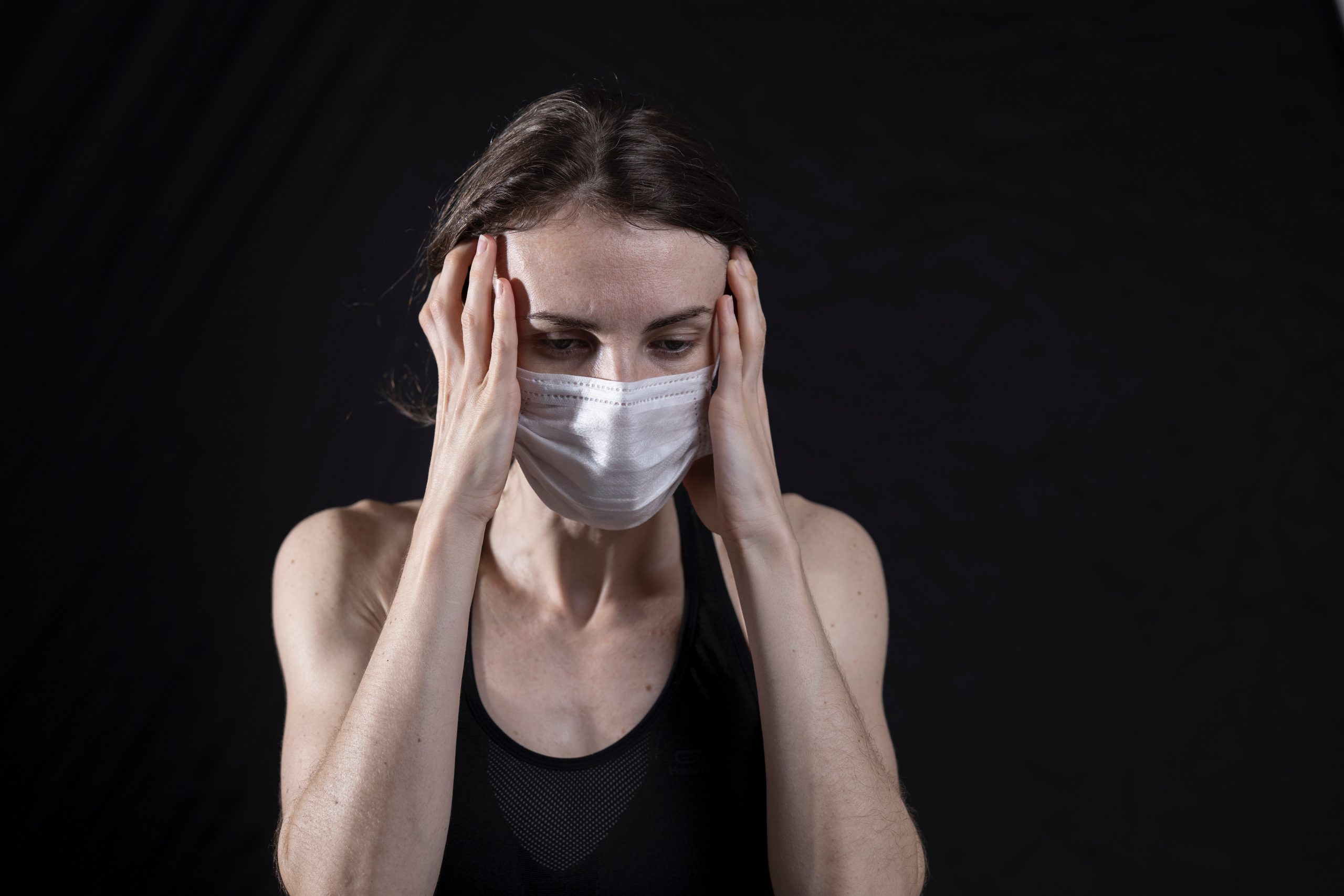LISTEN TO THIS ARTICLE:
In late July, I sat down to write about the return-to-normal anxiety that was beginning to characterize the summer of 2021. The trend “hot vax summer” embodied our hope that, with the aid of the COVID vaccines, Americans as a whole would be able to return to the restaurants, parties, concerts, and other gatherings that we’ve all been missing. After a year of quarantines, single people would be able to mingle and date without fear of getting sick. As the massive winter surge died down, we hoped that we were finally entering a “post-pandemic” era where we could remove our masks, stop worrying, and get back to living our lives as usual.
The pandemic has thrown us all for a loop, to say the least. Out of all the emotions we’ve been through this past year and a half, anxiety dominates. That anxiety made sense last winter when daily infections peaked at over 300,000. Back then, our only defenses were masks and social distancing. COVID anxiety about going to crowded public places was protective. It served a life-preserving purpose.
This summer, it was supposed to be different.
Hot vax summer
Over half of all Americans have gotten the vaccine. In July, daily infections reached their lowest point since the pandemic began. When states began lifting mask mandates, the rapid return to a semblance of normal caught at lot of us off-guard even though we were aching to enjoy “hot vax summer.” Fifteen months of masks and self-isolation created in so many a sort of pandemic-induced agoraphobia.
Eating at a crowded restaurant, grocery shopping at rush hour, seeing someone cough or sneeze maskless – none of these gave us pause two years ago, but this summer they can make your skin crawl. Throughout the pandemic, anxiety like this has not only helped keep us safer but also has given us a sense of control. The act of worrying about the worst case scenarios helps us feel prepared. It’s the same reason people with Anxiety Disorders worry. It’s just a way of coping with uncertainty.
Delta variant
Unfortunately, we only had a few weeks of blissful summer normality. Although the CDC lifted its mask recommendation for vaccinated people on May 13th, it rolled that back on July 27th due to skyrocketing cases related to the highly contagious delta variant. To be clear, the CDC has always recommended masks for unvaccinated people. If you struggled to return to normal at the beginning of the summer, this new surge must feel like a roller coaster.
The delta variant of COVID halted any hope that we might enter a “post-pandemic” era. Delta drove the major surge in India this past February. It has since powered through Europe, Asia, and Africa. It is the dominant strain in the U.S. and globally.
Right now we are in the thick of our fourth wave. The U.S. has posted multiple days with over 200,000 new cases. States with low vaccination rates have the worst infection rates, and many are experiencing their worst infection rates ever. Hospitals in the southeast are struggling to keep any beds available, while governors in those states dig in their heels against mask usage and vaccinations.
COVID anxiety forever?
How many more waves of this do we have to endure? This back and forth is exhausting and traumatic. Each of us only has so much energy we can devote to thinking about the pandemic and our own safety. It’s easy to waste that precious resource on things we can’t control, so let’s talk about how to use that energy wisely.
Here’s how to do that: First, accept the things you can’t control. Second, take concrete actions to manage the things that you can influence. “Are all these people without masks on actually vaccinated? Did that person who coughed behind me at the supermarket have COVID?” You can’t know the answers to questions like that, and there is nothing you can do about that. Instead, focus on the aspects of your life that you can control.
Anxiety remedies
If you’ve got COVID anxiety and you haven’t gotten the vaccine, now is the time to get one. Those who don’t want the vaccine or can’t get it for a medical reason should continue to wear a mask in public places.
If you are vaccinated and you’re still anxious, you can continue to wear a mask as well, as the CDC now recommends for areas with higher levels of transmission. However, if you’re vaccinated and wearing a mask and you’re still anxious, you might be over-stressing yourself.
The best antidote to excessive anxiety is facts. Masks help reduce airborne transmission of COVID. Also, the vaccines are highly effective at preventing severe COVID infections. Over 97% of people sick in the hospital with COVID right now are unvaccinated. If you’re vaccinated and wearing a mask in the appropriate places, that’s all you can do.


 Learn
Learn Get News
Get News Find Help
Find Help
 Share
Share
 Share
Share
 Share
Share
 Share
Share



